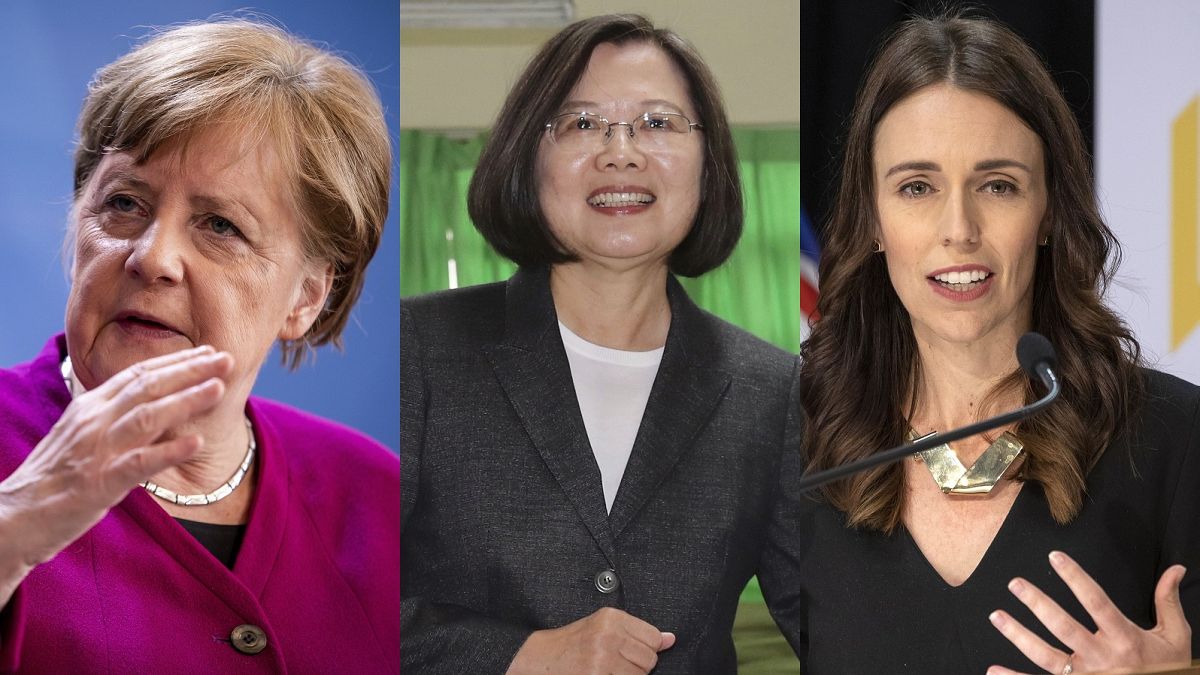What do Germany, Taiwan and New Zealand have in common? Strong leaders, widely applauded for doing an exceptional job in how they responded to the current coronavirus crisis. Strong female leaders.
What do Germany, Taiwan and New Zealand have in common? Strong leaders, widely applauded for doing an exceptional job in how they responded to the current coronavirus crisis.
Strong leaders who took the temperature – literally – of their nations and showed empathy and decisiveness. Strong leaders who prioritised swift action and common sense ahead of political point-scoring and self-aggrandisement. Strong female leaders.
So, what characterised their approach to the global pandemic?Firstly, clarity, as evidenced by German Chancellor Angela Merkel’s early adoption of widespread testing and ensuring the availability of many intensive care beds contributed to Germany’s low death rates. With a doctorate in quantum chemistry, she favoured a winning formula of trusting in science while remaining crystal clear about her government’s expectations of the German people. According to commentator Ricardo Roa, “She communicates with scientific rigour. She communicates with calm. She disarms hysteria." Coincidentally, she’s also celebrating her highest approval rating since 2017.
Then there is decisiveness. One of the swiftest responses to the pandemic was by Taiwan’s female president, Tsai Ing-wen back in January. She introduced 124 measures to block the spread of COVID-19 without resorting to a full lockdown.
Thirdly, compassion has been significant. Norway’s prime minister, Erna Solberg appeared on television to talk to her country’s children. She answered their questions, listened to their fears and told them it was OK to be scared. Mette Frederiksen, her Danish counterpart, addressed children in a press conference at the end of March and also filmed herself taking part in the weekly singalong on Facebook Live.
Fourthly, strong communication. New Zealand’s prime minister Jacinda Ardern learned from what was happening in Europe. Her approach at the beginning of the pandemic was based on clarity, empathy and scientific facts – and she won acclaim for excellence in both the way she communicated and the language she used. After announcing her country’s measures, the prime minister chose social media to "check in with everyone" on Facebook Live as they prepared to hunker down. Interestingly, she has refused to use the word lockdown, referring to self-isolating as being “in the bubble” instead.
Lastly but no less important in terms of character traits is being able to show empathy and solidarity. Unlike other business leaders who have gone ahead with dividends and pay-outs, Jacinda Ardern announced that she, the ministers in her cabinet and public service chief executives would take a 20% pay cut for the next six months, to recognise the impact on other New Zealanders.
Strong female leaders have proven themselves outside of the pandemic context. A recent Forbes article recalls what happened back in the financial crisis of 2008, when reports suggested that banks led by a higher proportion of women (as well as countries that enjoyed a higher representation of women in leadership, particularly in the financial sector) suffered less from the global economic crisis. The piece reveals how changes to governance in Europe post-2008 increased female board representation in big banks from 15% to 33%.
So, what is the right way to handle a crisis and ensure a good outcome? In the current virus-stricken world, it would seem that acting in an empathetic, altruistic and risk-averse way is getting results.
Handling a global pandemic takes a certain skillset, balancing decisions about the right action to take (and when) while supporting and reassuring the general public. Whatever your gender, it means leading with courage and conviction - and not focusing on political or personal gain. It’s a readiness to ignore ego and align yourself with the general public, eschewing political prowess and popularity in favour of supporting your community, your country and the world as a whole. It’s showing solidarity yet being confident enough to lead the way and to make and implement tough decisions.
According to a fascinating article by Female Breadwinners, a study at a Canadian university revealed that female directors are more likely to probe and ask questions and challenge the status quo rather than nodding through decisions. It’s reflecting that same careful, considered approach that Angela Merkel favours.
Not only do women bring fresh perspective, new insights and energy to the boardroom, they enjoy working collaboratively and intuitively, making frequent use of cooperation and consensus-building.
It’s not just about the way women approach issues; it’s also about the results they deliver. Research reported by 2020wob revealed that public corporations with women on their boards outperform those without in terms of “profitability, productivity and workforce engagement.” According to Morgan Stanley Capital International (MSCI), at the end of 2018, companies with strong female leadership generated a return on equity of 10.1% per year versus 7.4% for those without, showing the clear benefits of diversity in the boardroom.
This is where breadth of experience and gutsy leadership skills count. It takes a certain kind of individual to push through.
When we emerge from the coronavirus crisis, it will be into a changed world. Now, more than ever, there’s a place for women who have the skills and the commitment to power through adversity and make a difference.
Victoria McLean is the CEO of CityCV.co.uk, a leading international career consultancy.
____________
Are you a recognised expert in your field? At Euronews, we believe all views matter. Contact us at view@euronews.com to send pitches or submissions and be part of the conversation.

